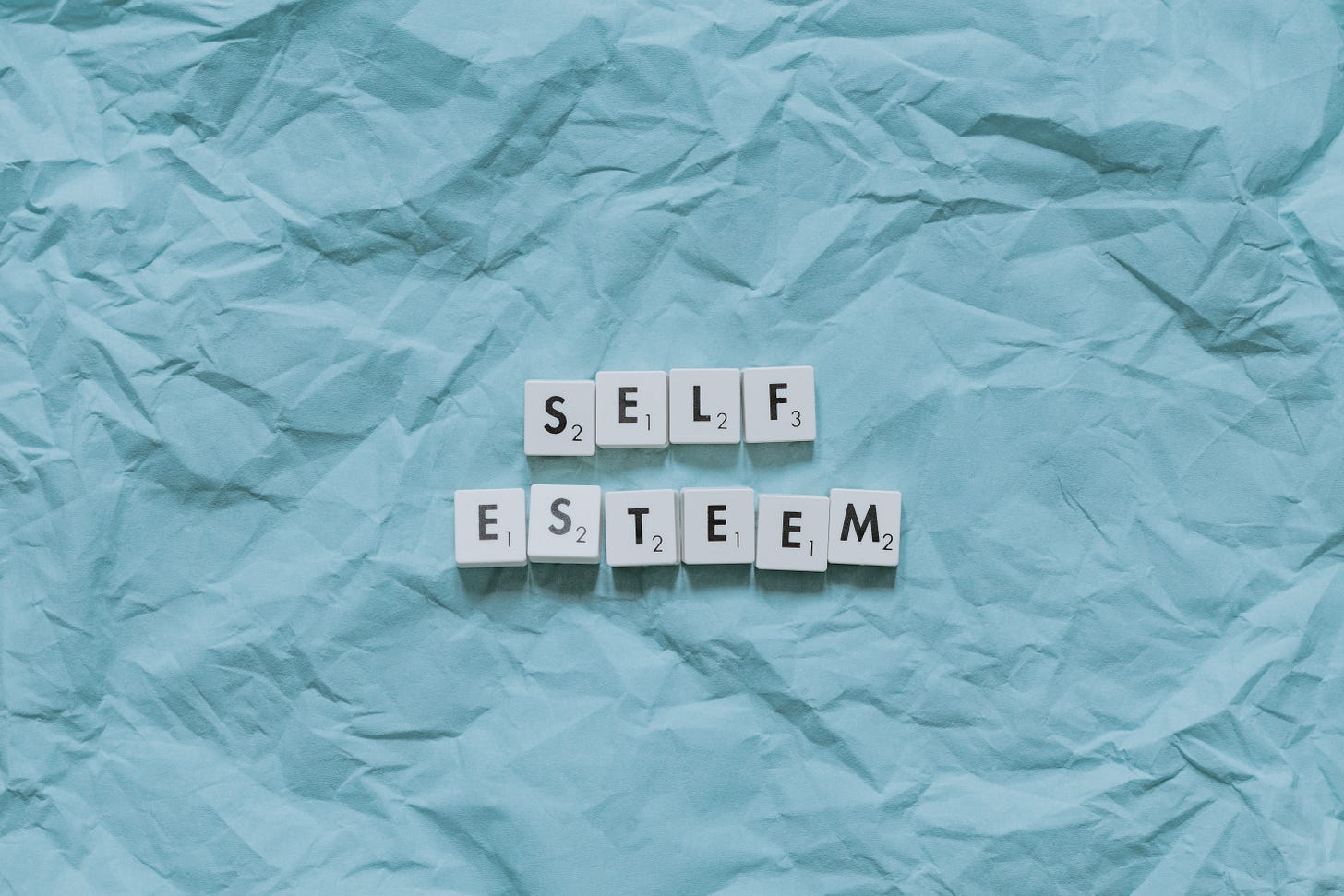We tend to think of self-esteem as being a root cause of problems, and it’s deeply embedded in the way we think about lots of things, for example it was a common assumption that obese children suffered from low—esteem, that violent acts, teen pregnancy and crime were caused by people who had low self-esteem, that low self-esteem sat at the heart of addiction. Public policies have been developed based on this simplistic premise, and many more books have been written on ways to boost or improve self-esteem because it was thought this was a problem that should be solved.
Photo by Pawel Czerwinski on Unsplash
It turns out, the real problem is the way we think about self-esteem.
Self-esteem is a term that is used to describe complex thoughts that drive the value and perception that we have of ourselves, the reality is that we think about self-esteem in terms of low or high, when simplified it becomes something to boost or raise to get a better outcome. High = better, low = poor.
This is where things get interesting, there’s a phenomenon with a ridiculously long name ‘floccinaucinihilipilification’, it essentially describes the fact that people with low self-esteem have a negative view of everything, not just their own self-worth. And having a negative view of the world does not automatically mean that things are in fact terrible, we’ve all shared an office space, or a meal with someone who has a metaphorical cloud above their head. I do want to mention here that the world needs worst case scenario thinkers, counterfactual thinking and negative rumination is a valuable mental tool, positivity and negativity can both become toxic in large doses. Where low self esteem leads to a negative world view, people with positive self esteem are likely to exaggerate their successes and good traits.
Our world views are important when we think about self-esteem because it raises questions about the overall accuracy of what we think we are measuring. Self-report questionnaires (the go to scientific method) evaluating self-esteem in the first place could be a problem, a person with a negative view of the world is going to report having more negative outcomes than someone with a positive view of the world. This is one of the reasons that we associate low self-esteem with poorer experiences, outcomes, and performance. Studies show that people with self-esteem claim to be more likable, have better relationships, and to make better impressions on others than people with low self-esteem, but when we measure these, we find little evidence this is true.
Studies show that when we compare an individual’s own view of their self-esteem against measures such as ‘how liked is that person’ there is very little correlation, people with low self-esteem are not necessarily in a worse place, but their assessment is off. They approach the question with fog tinted glasses because their overall assessments are more negative.
This is why studies show that boosting self-esteem doesn’t improve performance, and in some cases it creates a poorer outcome, because essentially, self-esteem is perception rather than reality, but of course this has consequences in the form of beliefs, which shape our world view.
So where does this leave us? High self-esteem is a misunderstood state, it is the thing that makes us speak up in groups, persist for longer when things aren’t going to plan, curiously it also helps us know when to give up. Finally high self-esteem is related to happiness, we don’t know why or how.
My message to you is this, you don’t have a problem with low self-esteem, just the way you think self-esteem works.
For a longer and more indepth read, this paper brings together studies, shortcomings and current thinking about Self-Esteem.




It’s hard to change perceptions about yourself though isn’t it so low self esteem can be debilitating